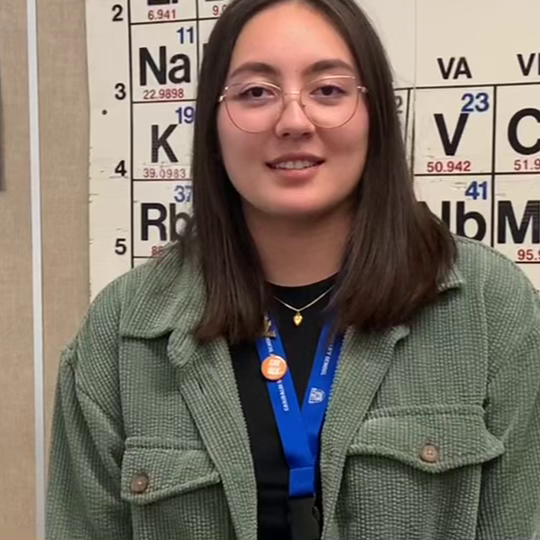School of Education
Credential:
Certificate
Duration:
2 semesters
Format:
Full time, Part time
Start date:
September
Location:
May vary depending on course selection, Mission campus
Cost:
$6,500 Details
FEATURES:
This one-year, 30-credit program prepares students to work with school-aged children and youth in schools. Under the direction of classroom teachers and learning support specialists, inclusive education assistants provide personal care, behavioural and learning support. They facilitate meaningful inclusion, communication, and social interaction. Inclusive education assistants can support students with diverse abilities in elementary, middle, and high schools in a variety of settings, including regular classrooms, learning support rooms, work experience sites, or in life-training settings. Graduates of the Inclusive Education Assistant certificate can choose to continue their careers and use their credits towards completing a degree at UFV and eventually becoming teachers themselves. Graduates can also consider continuing their studies in the area of community support or social services.
The program can be taken on a full- or part-time basis. Part-time students may enroll in any available program course provided they meet the stated prerequisites and there is space. Part-time students may not be able to access all required courses in sequence. Qualifying Studies students and students in other programs may be able to enroll in some required courses if they meet the stated prerequisites and there is space.
Throughout the program, you are expected to understand and apply the BC Teacher’s Council (BCTC) Professional Standards for Educators, ensuring you uphold high professional and ethical standards in all educational settings.
Assessment of prior learning is available for qualified students.
View the IEA program in the Academic Calendar.
Inclusive education assistants work in K-12 educational settings providing support to students with diverse needs and abilities. They might move from classroom to classroom helping students with a variety of needs and abilities. This role is ideal for individuals who have a passion for helping others and enjoy working closely with children and adolescents in a dynamic, supportive environment.
The forecasted job openings is 7,110 (2023-2033) according to WorkBC. Job titles for this position may include: educational resources assistant, remedial education aide, and teacher assistant.
UFV’s School of Education has a strong reputation and hiring rate amongst Fraser Valley School Districts. In designing this Inclusive EA certificate, the School of Education met with Learning Specialists and Administrators from the Fraser Cascades, Chilliwack, Abbotsford, Mission, Langley, and Surrey School Districts to identify the key skills, knowledges, and dispositions needed to be an effective EA. The program was then designed to address all aspects, making these courses the most up-to-date preparation for today’s complex classrooms.
Note: Admission to the program does not guarantee placement in a practicum. Please see the Practicum regulations section below.
Students who do not meet these requirements might consider Qualifying Studies.
This program is open for international students
Apply to Qualifying Studies if you do not currently meet the entry requirements.
Admission to the program does not guarantee placement in a practicum; students must be in good standing in their program to enrol for practicum. A program GPA (PGPA) of 2.00 is required for practicum placement. Students who are on Academic Warning or Academic Probation or subject to academic or non-academic student misconduct proceedings will not be permitted to register in the practicum. Students are not guaranteed the practicum of their choice. Students are required to register for the practicum course on the campus closest to their practicum.
The Field Experience Coordinator will assess students’ readiness for practicum on their knowledge, skills, and professionalism based on their performance in EDAS courses. Each practicum requires a minimum of 200 hours (two to four days per week for 13 to 15 weeks). Students can take the practica as EDAS 131A and EDAS 131B, if they prefer to take the practicum on a part-time basis. Concurrent with the practicum, students attend mandatory seminar classes.
Under the Criminal Records Review Act, students in a professional post-secondary program with a practicum component involving work with children and/or vulnerable adults must undergo a criminal record check (CRC). This is a requirement before students can participate in any practicum placements. Upon admission to the program, directions will be provided for admitted students to initiate and pay for the CRC, so that the clearance letter can be received at least one month before starting the practicum.
Record checks completed through the RCMP or local police detachments do not meet B.C. government requirements.
Please note that prior to being hired by a school district, a valid first aid certificate (Red Cross Basic Life Support, Occupational First Aid Level 1, or St. John Ambulance Standard First Aid) will be required.

Yuri, Teacher candidate
"I had very engaging and passionate science teachers that made me passionate and interested in the topics."
Yuri & Suman share why they're pursuing careers in education, what they love about teaching, and offer advice for anyone who's interested in becoming a teacher.
Watch videoThe School of Education partnered with local educators to create a new web resources to support teachers, inform families, and reduce misinformation.
SOGI in Schools